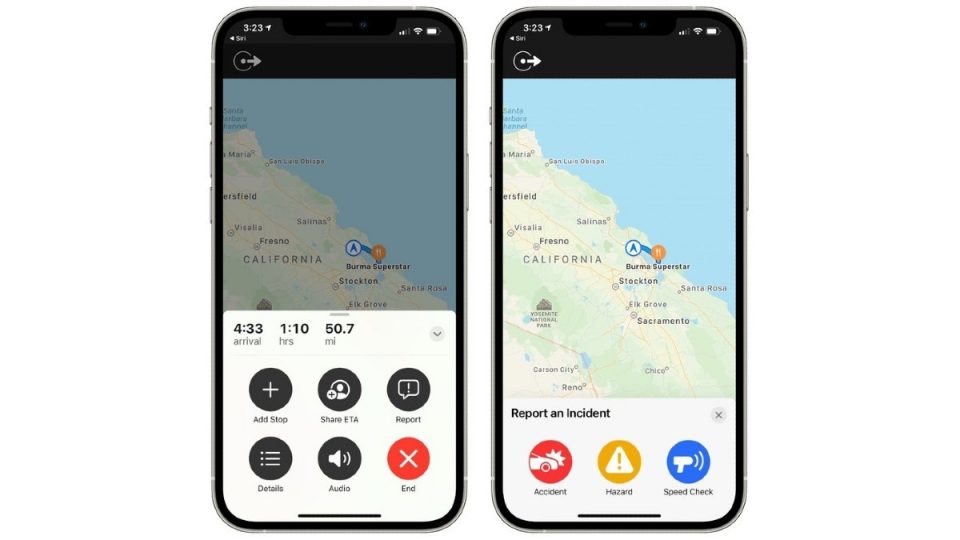
Apple Maps is getting a new update that will allow users to report accidents, hazards, and speed checks while navigating to a destination. The new update is currently limited to the latest iOS 14.5 beta release, though Apple is expected to bring it along with the next public iOS release in the coming days. The new feature looks quite similar to incident reporting available on Google Maps and Waze. Apple Maps users can also use Siri to report an incident to Apple Maps using their voice.
A MacRumors report says that the updated Apple Maps app on the iOS 14.5 beta brings the feature to report incidents, which includes accidents, hazards, and speed checks. A new Report button for the feature appears alongside the existing Add Stop, Share ETA, Details, and Audio options. By pressing that button, users can select the type of incident or hazard they want to report.
There is also the option to report incidents using Siri. This means that you could be able to report an accident on your route by saying, “Hey Siri! There’s an accident on the road”.
Apple Maps is likely to use a certain number of reports to reflect incidents for all users. This is similar to how Google Maps or Waze allows users to report incidents.
The MacRumors report says that apart from iOS devices, the reporting of incidents is also in the works for CarPlay systems. However, the feature is likely being tested only in the US initially and at a limited capacity, as not all users on the iOS 14.5 beta have been able to spot it on their devices.
But nonetheless, Apple Maps is quite likely to add incident reporting for a larger audience through the public release of iOS 14.5. Apple is also expected to make incident reporting available for all major markets over time.
Incident reporting was initially available on Waze through crowdsourcing user reports about accidents, hazards, and speed checks. However, Google Maps introduced that same experience in March 2019 — thanks to Waze’s acquisition.
What will be the most exciting tech launch of 2021? We discussed this on Orbital, our weekly technology podcast, which you can subscribe to via Apple Podcasts, Google Podcasts, or RSS, download the episode, or just hit the play button below.


